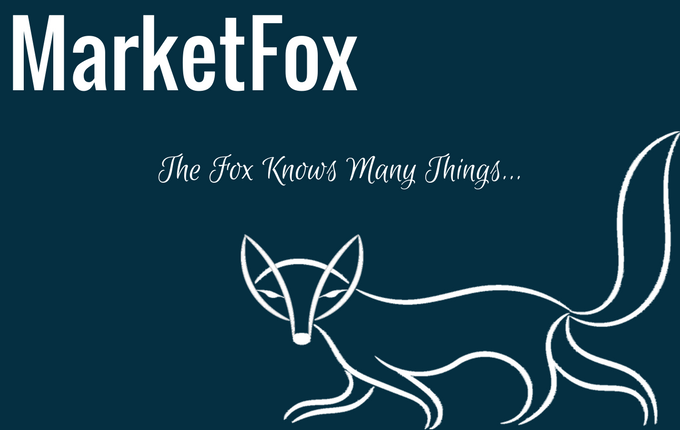Recently, I was invited by a friend to give a guest lecture to the students of the Royal Melbourne Institute of Technology’s (RMIT) Master of Applied Finance class. The students had spent the semester studying asset allocation and portfolio construction. My brief was to provide some real-world context.
I decided to share one of the most important realisations of my career. Institutional investment management involves two processes: an investment and a political process. Both are important. There is a natural tension between the two. And very few people are good at both. It’s important to figure out where your strengths lie; the sooner the better. It’s also important to understand how the organisation that you work for balances the trade-offs between the two.
I began my presentation with this slide:
There’s an underlying assumption behind most of what we learn at University – we always get to start with a blank sheet of paper. Every paper that I ever wrote assumed that I was the sole decision maker. Or if I was providing advice, the client either had no existing investments or would be happy to accept all of my recommendations. The client never dealt with multiple advisors, fund managers and service providers. There were no capital gains tax issues to consider. Fictitious clients never changed their minds.
The reality of institutional investment management is very different. It probably looks more like my next slide:
Decisions will be made at multiple levels, sometimes by individuals and sometimes by groups. Each level will impact the final decision. It’s not enough to make good investment decisions, you also need a process to deal with this reality.
But why call it a political process? Simply because it requires achieving consensus, which involves relationship skills: persuasion, pragmatism, compromise, et cetera. You don’t get to chose the portfolio you inherit, nor the Board or Committee members that you report to or the people that you work with. These people are chosen for a variety of reasons, not all of which have to do with investing. And they change.
These changes usually take place gradually over time. Most institutional portfolios resemble an archaeological dig site; multiple layers each representing a different period in the portfolio’s history. Decisions are always made on the foundation (sometimes the skeletons) of what came before.
Consider the following scenario. An Investment Committee meets to consider the 10-year performance of a portfolio. In many cases, term limits will ensure that the Committee members assessing performance will be different to those who made investment decisions ten years prior. Key investment staff may have moved on. The investment team may have grown in size.
The investment consultant may have changed and many of the fund managers almost certainly will have. The institution’s assets under management will be either larger or smaller. Perhaps the institution’s investment management approach has changed. In the beginning, they hired fund managers and now they invest in-house or run diversified factor portfolios.
What is the Committee assessing? They are implicitly assessing all of these decisions and probably many more that I’ve left out. All with the benefit of hindsight, I might add. They don’t teach you how to deal with any of this at university!
OK so where’s the problem? Successful active investment management involves being different from the crowd. In other words, the best active investors are usually skilled at figuring out where consensus is wrong, not in building it.
There’s a tension between the challenges of institutional governance and investment management. It’s not that one is better or more important than the other. Both are vitally important. But they are different. They require different skills and in my anecdotal experience generally attract people with different personalities.
Hence my exhortation to the students to figure out which one you’re good at and to do it quickly. I believe this self-awareness is important for three reasons:
- Knowing which is your stronger and weaker suit will help you to find opportunities to play to your strengths and also work on your weaknesses.
- Find a job where your employer’s expectations of you hopefully match your skills and your personality. You’ll be much happier if you do.
- You’ll be able to empathise with people whose strengths are your weaknesses and vice versa.
My thinking seems to be geared more towards solving investment problems rather than achieving consensus. It took me a while to figure this out and to come to terms with what it means. While I can improve my political game (I’m always trying), I’m unlikely to ever change who I am. Nor do I want to, as it might blunt my investment instincts.
Examine the careers of great investors and you’ll notice a consistent theme. They’ve all faced periods where they’ve stood apart from the crowd. For example, my chat with Jeremy Grantham on the i3 Insights Podcast.
I’m not suggesting that an investment focus is necessarily better than a political focus. Both are skills in their own right. But it’s reasonable to accept that someone with the skills, personality and experience to make a good portfolio manager is going to be different than someone suited to being the head of investment operations.
Organisations also need to be self-aware. They need to understand their culture, the incentives that it creates and the behaviours that it rewards.
Mismatches happen. I see this all the time in job ads. Typically, the role will be described as follows:
“An exciting opportunity to be part of a dynamic investment team where you’ll have hands-on involvement in investment decisions and be responsible for portfolio outcomes.”
Sounds like the perfect investment role. Reading on, the story changes. Many of the candidate must-haves relate to the political process. For example:
“The ideal candidate needs to be good at writing reports, have excellent personal communication skills, interpret and use investment consultant research, support the investment team with performance and risk attribution, be a team player etc.”
So which is it, do you want to hire an investor or a consensus builder or both?
The challenge for institutions is to find room for both sorts of people to work together. They need both. And they can help each other out a lot, provided that they don’t frustrate each other.
This is one of the key lessons in (Bridgewater founder) Ray Dalio’s book: Principles: Life and Work. Diversity of thought means working with people that won’t always agree with you. It’s a tautology!
Organisations where the political process dominates can usually be spotted. For example, they generally dislike change. Consensus-building is difficult when there is change. Organisations where consensus is the focus tend to stick to the status quo.
This can have negative side effects. For example, learning becomes difficult. After all, why bother learning if there’s no appetite for growth and change? There’s no point. It only sets you up for frustration in the future. The status quo also promotes hierarchy and tenure. Very different from the “radical transparency” and “meritocracy” that Dalio worked hard to create at Bridgewater.
So, if you’re a graduate, or anyone else for that matter, that loves to learn, you need to be careful about where you chose to work!
The key theme of this post is self-awareness. We need to understand our strengths and weaknesses and how they relate to our organisation’s culture and expectations. Organisations need to carefully examine the behaviours that they promote and consequently the kinds of people that they attract and repel.
__________
[i3] Insights is the official educational bulletin of the Investment Innovation Institute [i3]. It covers major trends and innovations in institutional investing, providing independent and thought-provoking content about pension funds, insurance companies and sovereign wealth funds across the globe.



